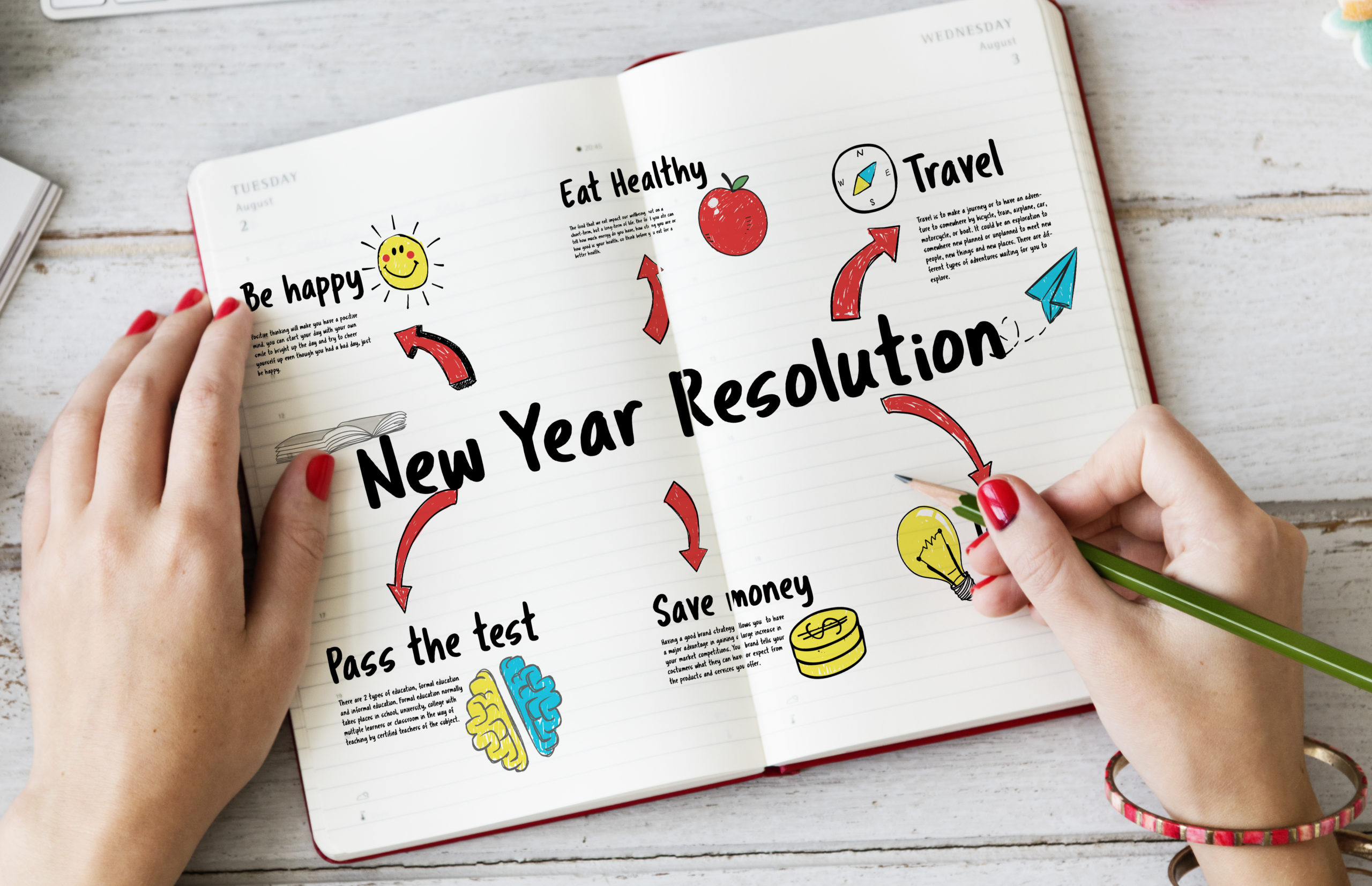by Brandy Abalos
The beginning of a new year is the perfect opportunity
to establish new routines and change bad habits. Many people make New Year’s Resolutions that they fully intend to keep. However, according to the University of Alabama Health System, as few as 8% of people stick to their goals. Here are some tips that can help you keep your resolution and improve yourself for the new year.
Make a Specific Micro-Goal
You might want to make big changes, but people who successfully keep their resolutions tend to make small goals instead. It’s best to be specific about the outcome you want and establish a path to achieving that resolution.
For example, instead of saying you want to become healthier in the new year, you should find a specific action you can easily accomplish each day. If you don’t eat many vegetables, you might endeavor to eat at least one green vegetable daily. Or, you might task yourself with drinking eight glasses of water per day. Don’t overwhelm yourself with a large or vague goal that is hard to measure.
Understand the Purpose of Your Resolution
You should make a resolution that has deep importance to you. That will improve the chances of being motivated to achieve that goal. Don’t succumb to pressure to make a boilerplate resolution like “giving up soda” unless that’s really something you want to obtain. You should also avoid making goals based on what someone else expects of you or wants for you.
Keep Track of Your Progress
You will stay focused on your goal if you keep track of progress in a way that you can reference regularly. You might start a journal of your successes and challenges or keep a spreadsheet that tracks milestones. If you do opt to make a major change, you should keep track of small wins along the way to maintain motivation.
Don’t Expect Perfection
As with anything in life, you won’t likely be perfect right away. You will likely start out strong, but your resolution may waiver after a few weeks. It’s easy to get caught up with the rush of life in a new year and get sucked back into old routines and habits. Don’t give up. Forgive yourself for mistakes and pick back up where you left off. The ups and downs you experience are all part of the journey to making permanent changes in your life.
Schedule Time to Achieve Your Goals
Everyone is busy and has many interests that are constantly competing for time. If you want to achieve your New Year’s resolution, you should carve out time to take action towards that goal. You might block off 30 minutes per day for meal prep or 15 minutes to journal. Make sure you provide yourself with enough time to work toward your goal and analyze your progress.
Get a Buddy with Similar Goals
Doing something difficult can seem easier if you have a friend who is working on a similar goal. New Year’s resolutions can become overwhelming if you’re trying to achieve them alone. Whether your buddy is working out beside you or simply following up on your progress to support you, sharing the experience with someone can be helpful. Make sure you find someone who you trust and who is reliable. That will ensure they stay positive about your progress, even if you hit a few bumps in the road.
Reward Yourself for Achievements
Although you might have a long-term goal in mind, you should reward yourself along the way for every small achievement. Keep in mind that a reward should not involve backward movement. Instead, healthy rewards support your resolution and inspire you to keep moving forwards. For example, if your goal is to reduce the number of processed foods you eat, you shouldn’t reward yourself with donuts after a week of compliance. Instead, find a non-food-related reward like buying yourself a new outfit or taking a cooking class you’ve always been interested in.
Value Slow Progress Over Quick Wins
You might get caught up in the excitement of the new year and lose sight of your long-term goals. People who successfully maintain their resolutions tend to slow down the pace of their achievements and focus on each one individually instead of rushing through each step of progress. Slowing down allows you to focus on small goals and gain clarity around your purpose. Meditation about your New Year’s resolution can help slow your mind and bring your focus to what needs to be done to accomplish your goals. Take time to sit down and take a few deep breaths while thinking about your resolution. Think about the steps you have taken and make a plan for the future. Imagine yourself successfully moving forward through your steps and achieving your goal.
Consider Your Abilities and Resources
When setting a New Year’s resolution, you should make one that is achievable considering your own abilities and resources. Be both optimistic and realistic. While you should set your sights high, don’t try to achieve something impossible within a short deadline. Changes can take weeks, months or years to accomplish.
For example, if your goal is to go rock climbing in South America, you could be the most motivated person in the world, but if you don’t have the financial resources to buy a plane ticket and take the trip within the next year, perhaps you should set your sights a bit more locally. Start with rock climbing at a location closer to home but far enough away that it feels like a vacation. Eventually, you will be able to expand your resources to set more challenging goals like visiting South America.
Don’t Be Afraid to Reevaluate Your Resolution
You might set a goal on New Year’s Day and later decide that’s not really what you want. Or, if you find yourself unable to meet small goals related to the larger resolution, you might reconsider it. Don’t give up on yourself altogether, but you can either alter your path or reassess your deadline to meet your needs.
When working toward your New Year’s resolution, be kind to yourself. Try to stay motivated, but don’t be afraid to reach out for help and make changes along the way








Leave A Comment